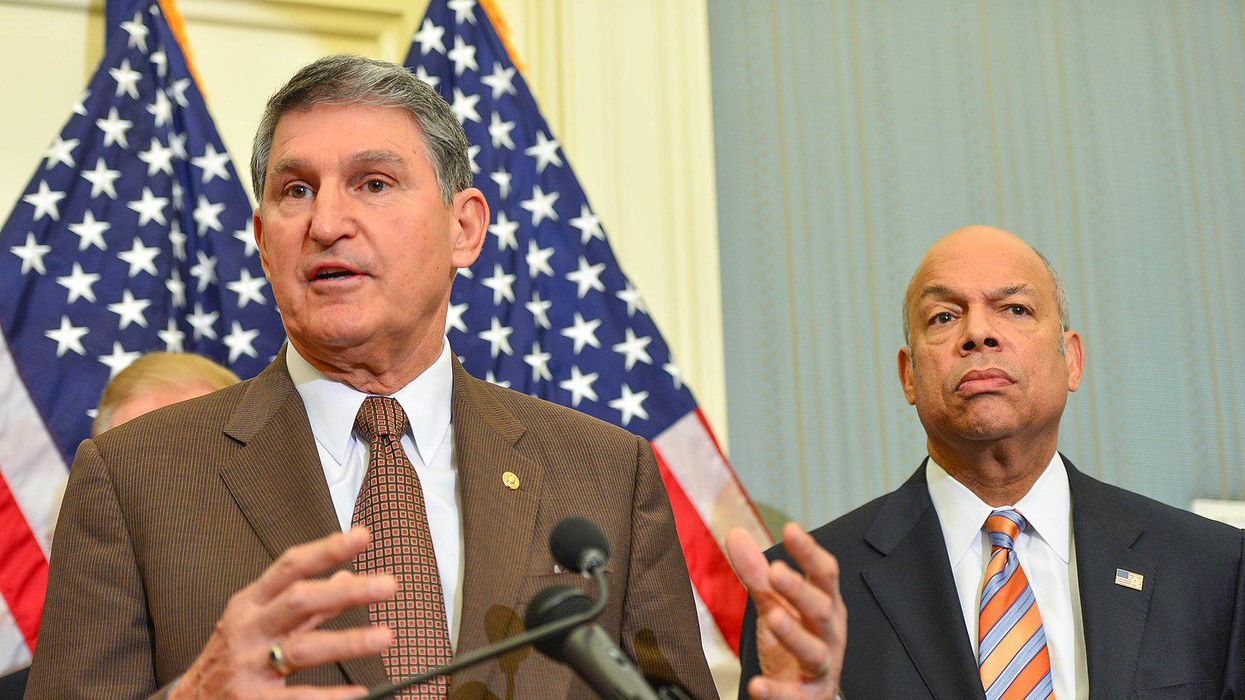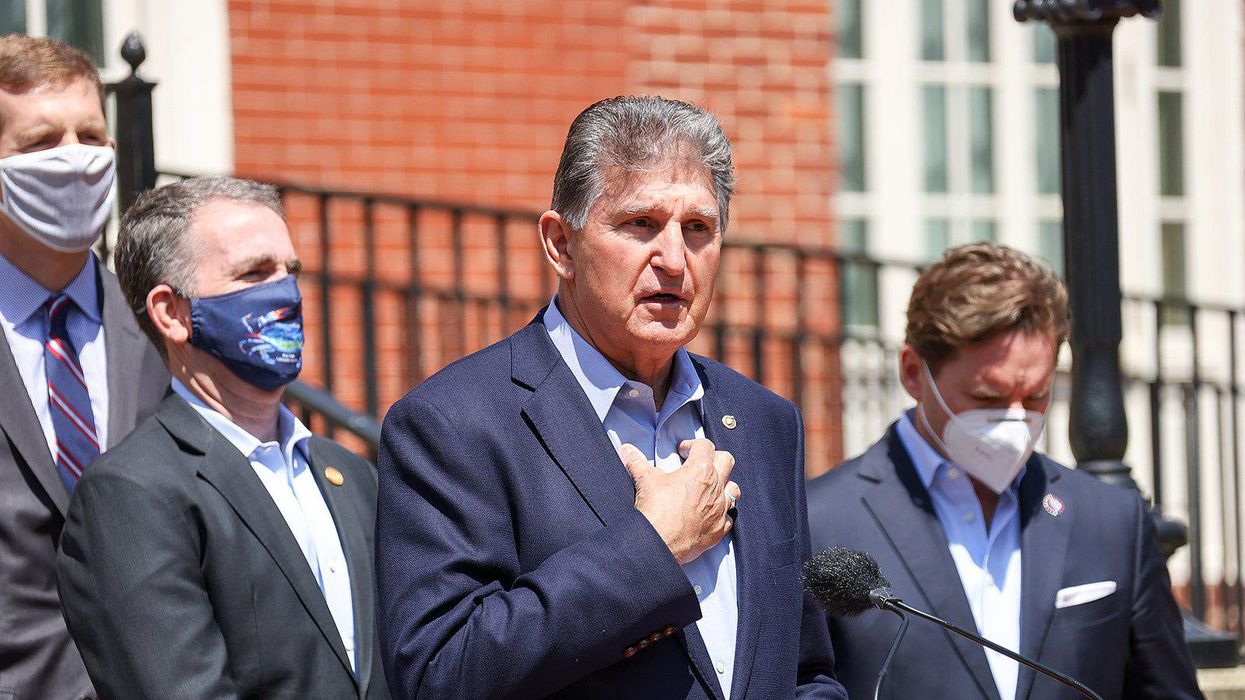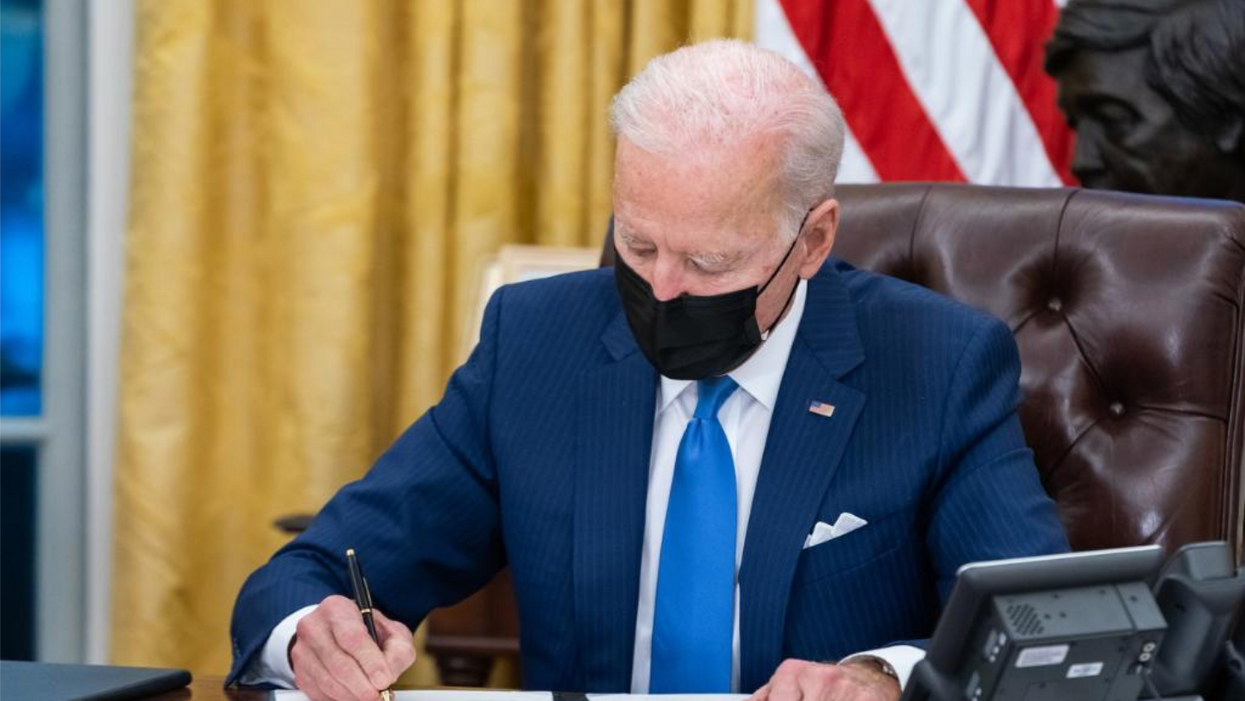Reprinted with permission from Press Run
President Joe Biden stands poised to pass one of the most substantial and popular pieces of spending legislation in half-a-century, following the Senate's passage of the $1.9 trillion Covid relief bill. The American Rescue Plan will not only provide $1,400 checks for most American families and extend jobless aid, the bill provides money for vaccine distribution and financial relief for cities, schools, and small businesses hit hard by the pandemic.
The sprawling legislation also represents the largest increase in safety net spending in a generation. It includes huge assistance for day care, broadens eligibility for Obamacare, helps renters, and will likely cut the U.S. poverty rate by one third this year.
Reporting on the six most important "takeaways" from the bill's Senate passage this weekend, guess what USA Today ranked as the most significant detail about the American Rescue Plan? Answer: The fact that Biden wasn't able to win over Republican backing for the wildly popular bill, which has 83 percent public support.
Chalking that up as a White House failure, USA Today stressed, "Biden campaigned on bipartisanship following four divisive years under Donald Trump. Yet he was not able to win over a single Senate Republican." The paper made sure to penalize Biden: "The lack of bipartisan support shows that breaking through the gridlock isn't as easy as Biden predicted as a candidate."
Detailing the GOP's deeply radical and dangerous tendencies is not a story the press wants to dwell on. That's a key reason the media screwed up Covid relief coverage for the last twelve months, constantly presenting a false picture of legislative negotiations, told through the prism of the GOP.
USA Today didn't include one sentence about how bizarre it was that every Republican member of the House and Senate stands opposed to a bill that 70 percentof Republican voters support. Instead, the press continues to depict the GOP's obstruction as being normal and understandable. That way they can ding Biden for failing to make the bill "bipartisan." (Beltway media Golden Rule: Democrats alone are responsible for creating bipartisanship.)
Republican behavior over Covid relief last weekend at times bordered on madness, as they tried to drown the process with sure-to-fail amendments. At one point, they even tried to strip out funds specifically targeted for poor women and children. But that was definitely not the dominant media narrative in recent days. The New York Times insisted it was Democrats who faced an "awkward episode" on late Friday when details over extending unemployment payments had to be ironed out after Sen. Joe Manchin (D-WV) raised objections. The event "threatened to defect and derail" passage, the paper reported excitedly.
Like USA Today, the Times was oblivious to the idea that Republicans faced any awkwardness for unanimously objecting to an emergency spending bill that the vast majority of Americans support, and doing everything in the party's power to slow down its passage, including the demand that the massive bill be read out loud in its entirety in the Senate, a move that wasted hours.
The Times waved off the GOP's extreme behavior as nothing more than, "a minority united in opposition." (i.e. Nothing to see here!)
Over the last twelve months, Republicans sabotaged all Covid relief negotiations, including Trump who routinely, and publicly, gave wildly contradictory statements about the need for assistance. Yet since last April, the press tagged Both Sides for failing to pass a relief package that was universally seen as crucial to the country's economic survival. ("Capitol Hill's failure to compromise" is hurting America, CNN emphasized.)
Fact: House Democrats in May passed a massive $3 trillion Covid relief package. To win over Republican support in the Senate, they then agreed to pass a smaller $2 trillion version. They were then ready to sign off on a further reduced $908 billion proposal. Republican leaders wouldn't even agree to that, yet the press consistently blamed "Congress" for not being able to meet halfway and pass much-needed assistance.
CBS News wondered, "Why hasn't Congress done more at this point?" The Congressional Covid failure represented "an institution gripped with paralysis," the Times stressed, while the Washington Post claimed the lack of legislation was due to "bickering."
Last summer, journalists claimed "Congress" was to blame for weekly $600 relief checks being cut off. Wrong — the payments were ended because Republicans forced them to end. In October, CNN's Wolf Blitzer launched into a heated argument with Speaker of the House Nancy Pelosi, demanding to know why she wouldn't accept a White House relief proposal, even though Senate Republicans didn't support it, which meant the White House proposal would never be voted on.
Twelve months ago, the Beltway press echoed GOP talking points by loudly claiming Democrats were "blocking" the first Covid relief bill, which was eventually signed into law under Trump. The Times stressed that Democrats "risked a political backlash," by lobbying hard for additional unemployment aid, as well as more money for hospitals, healthcare workers, and local governments. (Democrats won, and improved the bill.) Today, there's very little media coverage of Republicans "blocking" the recent Covid bill, or facing "political backlash."
Republicans never supported a second Covid relief bill, yet the press spent the last year pretending otherwise — insisting that of course GOP leaders urgently wanted to aid struggling Americans, where there was little evidence that they did.
The country will be well served by the American Rescue Plan, but the slow-motion train wreck of Covid relief coverage represented a distressing failure of journalism.




